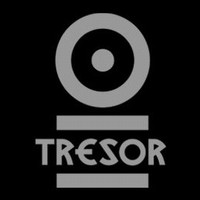Tresor Berlin gets TranZfused
Author: Will @ TranZfusion
Sunday, April 7, 2002

Tresor records has been a pervasive force in the development of techno over the past decade. From it's origins as an underground club in West Berlin to its status as a global leader in techno artist management, Tresor has always been foremost in quality and originality. Now in its tenth year Tresor has decided to celebrate its continued existence with a "best of" collection. One of the original members and general manager of Tresor, Carola Stoiber gave Tranzfusion an in-depth and extensive insight into the birth and development of the label and this new release, True Sprirt…
Tranzfusion: Firstly, I understand that Tresor was originally a club in Berlin. Could you tell us about that, how the label started and also how it became so successful-
Carola: To explain how the Tresor label started (in 1991) you have to look back further to 1988 because the same people (Dimitri Hegemann, Achim Kohlberger and me - starting as the secretary) started Interfisch Records with artists like Clock DVA (from Sheffield), Cosmic Baby, Dr. Motte and more Acid House projects from Berlin. The same time the Interfisch-label team opened the 'UFO'-club in (that time) West-Berlin. Today the name UFO club represents the beginning of the Berlin house and techno scenes. This fine little underground club had to close at the beginning of 1991.
After the reunion of both German nations, the crew found a new location in the heart of the city, near the 'Potsdamer Platz', the 'TRESOR', a former vault room ('tresor') in the basement of the biggest European department store at the beginning of this (20th) century. Here DJ's and musicians from Berlin (Dr.Motte, Tanith, Rok, Jon...) started their international careers and well-known recording-artists from the US (Derrick May, Jeff Mills, Moby, Marshall Jefferson, Blake Baxter, Eddie Flashing Fowlkes, Juan Atkins, ...) played Europe for the first time. And of course everybody met everybody.
It was just a small step from 'clubland' to 'clublabel' when Underground Resistance (Detroit) played the club and asked if the label team would release the X-101 project in Europe. The label structure/distribution etc. was already existing. As a sublabel of Interfisch Records, Tresor Records started in the late-summer of 1991 with the X-101/'Sonic Destroyer' release by the trio Underground Resistance (Mike Banks, Jeff Mills, Robert Hood) from Detroit as it's first release. The 'new' Technosound from Detroit and Berlin was the perfect soundtrack for the changing atmosphere in a changing city. The wall came down, the exchange between East & West started, for both sides new areas to discover. All went out to see what's going on in the other part of the city. There was something in the air. Everybody was curious and open to see what to explore. The new hard sound from Detroit and Berlin at Tresor (rough and underground) and the different way of the DJs to build it up were reflecting the something-really-different-is-happening-mood of the Berlin clubbers.
I personally think that the label became successful because nothing was planned... The story of the beginning just told… All happened by accident. The right place for a club, the right time, the right artists ready to spread their sound around the world, the label structure and people there to do it. It was just the feeling that we had to do it. And this is still how we work. Of course now you think more about things like how to build up an
artists, when is a good release date... but before all that even can start, we still have to have the feeling when we listen to the music: WE HAVE TO DO IT!.
T: Despite your success, I assume the history of Tresor hasn't been all sunshine and lollipops. What sort of challenges has the label faced in the past-
C: As an independent label the challenge never stops. We cannot have one release that is not working as we expected because we don' Tags

